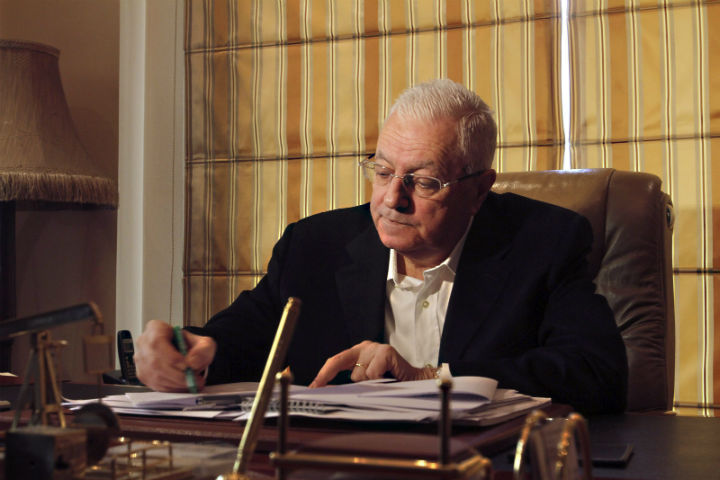The U.S. government has slapped sanctions on a group of individuals and organizations for supporting the Syrian government, including one person accused of helping the Assad regime buy oil from ISIS.

The Treasury Department said Wednesday four individuals and six entities will be subject to U.S. sanctions.
The department’s Office of Foreign Assets Control also put sanctions on Haswani’s engineering and construction firm, HESCO.
READ MORE: Pilot of downed Russian fighter jet says Turkey gave ‘no warning’
According to the company’s website, HESCO develops oil and gas infrastructure, including pipelines and tanks, in Syria and other countries in the Middle East and North Africa. Many of its contracts are with Russian firms.
Haswani was already the subject of European Union sanctions. He denied the accusations in March (when the EU imposed sanctions).
He told Reuters his company was working on a project in an area of Syria that is now under the militant group’s control and suggested that “is maybe how these fantasies were constructed.”
Black market oil sales are a lifeline for the terrorist group, which has captured swathes of territory in Syria and Iraq — where it declared the formation of a caliphate, known as the Islamic State, in June 2014.
- Conservatives ask interference inquiry judge to rule elections were flawed
- Ontario premier calls cost of gas ‘absolutely disgusting,’ raises price-gouging concerns
- Ottawa ‘doubling down’ on foreign aid amid global decline: minister
- Former B.C. minister Mike de Jong seeks federal Conservative nomination
READ MORE: CF-18s useless without on-the-ground training: Harjit Sajjan
Bloomberg describes ISIS as “one of the richest terrorist armies the world has known,” pointing out the Treasury Department estimates the organization is now bringing in $500 million a year from the sale of stolen oil.
Oil infrastructure in ISIS-controlled territory has become a recent target for international airstrikes led by the U.S. and strikes carried out by Russian fighter jets.
The international coalition over the weekend destroyed 283 oil tankers in the Syrian city of Deir ez-Zor near the border with Iraq, the Independent reported. Members of the Combined Joint Task Force, which includes Canada, carried out the strikes Sunday. Video of the strikes was posted online.
Russia, meanwhile, claims its warplanes have destroyed more than 1,000 oil tankers in a five-day period over the past week.
Russia, a longtime ally to the Assad regime, began launching airstrikes in Syria in September, independent of the international coalition. The Russian government had been accused of targeting opposition groups other than ISIS. But after ISIS claimed responsibility for the bombing of a Russian passenger plane over Egypt’s Sinai peninsula, Russia stepped up its air campaign against ISIS targets.
READ MORE: Majority of Canadians support airstrikes against Islamic State: Ipsos poll
Other U.S. sanctions imposed Tuesday target Syrian and Russian individuals and entities who are supporting the Syrian government in the brutal civil war that has raged for four and a half years and forced more than 10 million people to flee their homes.
“The Syrian government is responsible for widespread brutality and violence against its own people,” Adam J. Szubin, acting Under Secretary for Terrorism and Financial Intelligence, said in a statement. “The United States will continue targeting the finances of all those enabling Assad to continue inflicting violence on the Syrian people.”
Among those sanctioned is World Chess Federation president Kirsan Ilyumzhinov, a wealthy Russian businessman and former president of the Russian Federation Republic of Kalmykia. The U.S. accuses him of “materially assisting and acting for or on behalf of the Government of Syria.” The U.S. also sanctioned the Russian Financial Alliance Bank, of which Ilymzhinov is a major shareholder.
Mudalal Khuri, who owns or controls five of the sanctioned entities, has “had a long association with the Assad regime” and serves as a representative of Syrian government interests in Russia, the Treasury Department stated.


Comments